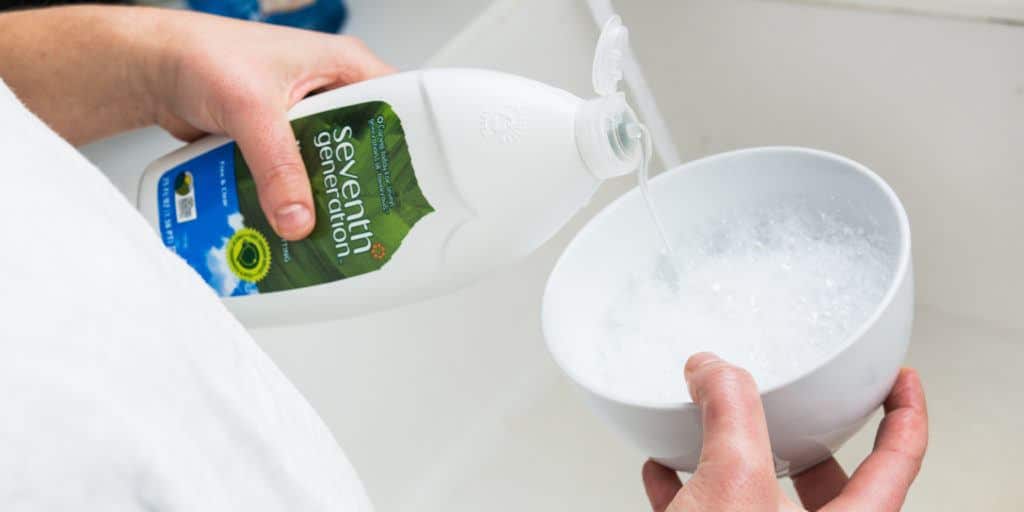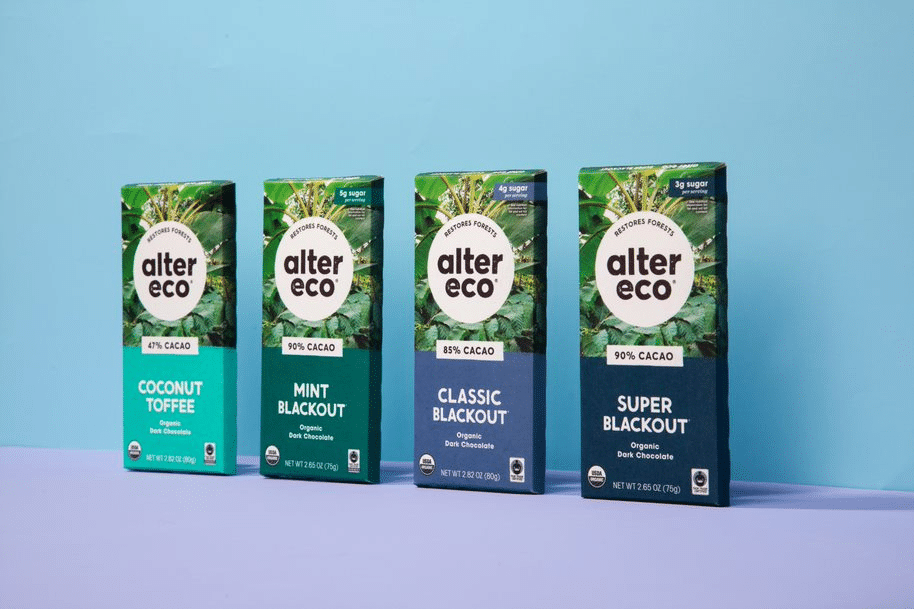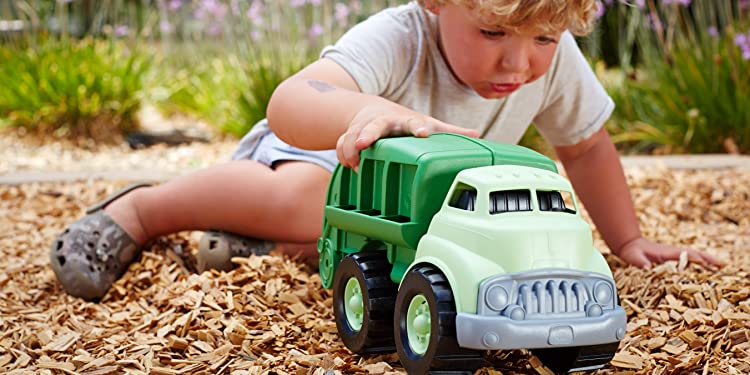5 Green Companies That Are Helping the Environment

Most Americans care about reducing the effects of climate change, however this has not always been reflected in government and industry. Yet with President Biden placing extra emphasis on renewable energy and green technology, there’s a better chance than ever that the market will begin to reward green companies developing new technology and committing to sustainability. As investment publication Kiplinger states it, “Expect more public spending on green initiatives amid Biden’s push to make the U.S. a 100% clean-energy economy by 2050. E stocks are also benefiting from social activism and public policy support abroad, such as mandated zero-emission targets in Europe and China.”
As time goes on, consumers will be looking to companies to make large-scale commitments to sustainability and demand more than just greenwashing. Turning a company toward the path of environmentalism is no easy feat, and takes much work and company restructuring. The good news is that numerous successful companies have committed to a green future, showcasing now only how to be a sustainable business, but also the many advantages of doing so.
To celebrate Earth Month and Earth Day, Impactree has compiled a list of 5 amazing green leaders who take an authentic, company-wide approach to sustainability. Each of these companies is using their corporate social responsibility programs to enact outward facing change, using business as a means of helping the environment. However, not wanting to focus on mega-corporations, we have decided to focus on smaller companies that are more devoted to addressing climate change, shining a light on the brands using the power of business for good.
1: Patagonia
The fashion industry is the second largest polluting industry, only second to oil production. Currently, 10% of global carbon emissions come from the apparel industry, and this number only climbs as the industry grows. The companies in the industry must invest in cleaning up their production line, and find eco-friendly solutions to the waste created by the industry.
Unlike many of their contemporaries, Patagonia is a clothing company built on the principle of environmentalism, addressing their ecological footprint from all angles. Much of the fashion industry creates clothing to be used and quickly discarded: “Buy. Use. Throw Away. Buy more.” This is where Patagonia is radically different, building their products to be durable and long lasting, and offering comprehensive repair and recycling options for their clothing.

Other than using their platform to partner with athletes and celebrities to advocate for climate change reform, Patagonia is putting their money where their mouth is and directly using their profits to fight for a cleaner world. They are a proud member of 1% For The Planet, giving almost $90 million to environmental groups since 1989. In fact, Patagonia founder Yvon Chouinard co-founded 1% For The Planet with Craig Mathews, and Patagonia was the first brand to become a member.
For almost 50 years, Patagonia has been a brand built around protecting and enjoying nature. While they have built a globally recognized brand on the quality of their products, their emphasis on sustainability and reusability has solidified them a loyal customer base committed to helping them find climate solutions in and out of the fashion industry.
2: Beyond Meat
A decade ago most Americans would scoff at the idea of meat substitutes, let alone vegetarian or vegan diets. However, the 2010s saw these conceptions quickly change as meat alternatives became far more popular and prevalent, appearing on the menus of many classic American food chains. This public shift is in no small part due to Beyond Meat, a meat alternative brand whose products are helping shift emphasis away from the climate-negative meat industry.

Animal agriculture is responsible for 18% of all greenhouse emissions, which is greater than all transportation emissions combined. Current industrialized animal husbandry is not only inhumane, but very resource intensive. Being created out of plants, meat substitutes have the ability to greatly reduce the amount of energy and water required for production, while also negating the massive amounts of methane created by livestock. However, many were initially turned off by the notion of imitation meat, or simply did not care for the taste or texture. Undeterred, Beyond Meat led the charge in shifting the public perception of meat substitutes, convincing millions of its potential and quality.
While it is unrealistic to think Americans will completely turn away from meat, studies have found that interest in meat alternatives has skyrocketed in recent years, with 95% of vegan burgers being ordered by people who are not even vegetarian. As meat alternatives are refined to better imitate the taste and texture of real meat, it is safe to assume their popularity and prevalence will only grow further.
Although not necessarily healthier than standard red meat, the environmental impact of meat substitutes could be huge. Beyond Meat already reports their production lowers greenhouse gases by 90% and land usage by 93%. With massive demands for meat, the animal agriculture industry has become a massive and wasteful endeavor, accelerating the rate of climate change. Yet, meat alternative companies like Beyond Meat are helping mitigate that impact, getting more people to eat a plant based diet with a far smaller carbon footprint.
3: Seventh Generation
As the Coronavirus pandemic blindsided America in early spring 2020, almost everyone scrambled to stock up on cleaning supplies. In this time of great stress, few thought about the environmental impact these products could create, especially when used in high quantity. Unfortunately, according to the Environmental Protection Agency (EPA) many of these products “biodegrade slowly or biodegrade into more toxic, persistent, and bioaccumulative chemicals,” and expose “toxicity to aquatic species in waters receiving inadequately treated wastes.”
Unlike their contemporaries, Seventh Generation is a company which considers the impact of their products, from their ingredients to the packaging once discarded; and their name is derived from this commitment to care and longevity. As their mission page declares, “We’re on a mission to transform the world into a healthy, sustainable & equitable place for the next seven generations.”

Aware of the harm chemicals can do to customers and the environment, Seventh Generation is committed to using plant based ingredients only. This continues into the fragrances and dyes used, which are never artificially created. Finally, great care is put into their packaging, which is composed of recycled materials to create the minimum effect on the environment and the people and animals living in it.
Coronavirus has completely changed how most people view sanitation, especially in how germs spread. As people are more willing to pick up sanitation wipes and hand sanitizers, it is paramount that these products do not exacerbate America’s trash crisis. As a leader in recycled and toxin-free cleaning products, Seventh Generation is showing the industry how to make cleanliness and eco-friendliness work hand in hand.
4: Alter Eco
Simply put, chocolate is an obsession for most of the world, with people eating billions of pounds of chocolate every year. Yet with such global interest in chocolate, many unsustainable practices have arisen within the industry. These include deforestation to make room for cocoa farms, and the creation of millions of pounds of unrecyclable wrappers clogging landfills.

Alter Eco is a different kind of chocolate company, formed fully aware of the environmental shortcomings of their industry, actively working to address and amend them. Alter Eco is aware of the environmental damages caused by monoculture agriculture, which is why they are investing in agroforestry techniques, planting a variety of trees and shrubs around cocoa crops, and strengthening the ecosystem of the farms they purchase from.
If packaging is half of the issue for the chocolate industry, Alter Eco has developed a revolutionary solution. After several years of research and development they “launched the world’s first compostable, non-GMO, non-toxic candy wrappers.” Alter Eco closely inspects the lifespan of their products, ensuring the creation, packaging and disposal of their products are being offset by green initiatives and compostable wrapping.
The chocolate industry is a wonderful synecdoche for the importance of sustainability moving into the future; people’s love for chocolate is not going anywhere, so it is up to the industry to create new technologies and practices to ensure its sustainability and carbon neutrality. With this frame of mind, Alter Eco is drastically altering the norm of chocolate, showing how the industry can play a part in addressing climate change.
5: Green Toys
It seems that for the entirety of human history children have played with toys. However, after the industrial revolution enabled the mass production of toys and child labor was banned in the United States, children’s toys became a worldwide market. Now, toys are a $90 billion dollar industry, with countless brands and types found online and in toy stores across the world. Yet, the industry’s reliance on cost effectiveness and single-use plastics has made it quite harmful to the environment and children.
Many plastic toys contain potentially dangerous chemicals like bisphenol-A and phthalates, which are classified as endocrine-disrupting, meaning they can affect the hormonal systems of developing children. In addition to the dangers presented to children, many toys are created from energy wasting processes, and often end up polluting landfills and bodies of water. To reduce the impact of the industry and get millions of pounds of plastic out of the environment, the toy industry must find means of incorporating recycled and cleaner base materials. One company who has been leading this charge for more than a decade is Sausalito, California-based toy brand Green Toys.

Green Toys is not reinventing the wheel – they make simple, time-tested toys perfect for young children. However, how they go about doing so is truly innovative. All of their products and packaging are made from 100% recycled materials, only using toxin-free plastics, cardboard and inks. According to their own data, every Green Toys box which gets recycled saves one gallon of water, and they have recycled over 105 million milk jugs into their toys.
Unlike other toy brands, Green Toys is sourced, designed and manufactured in the United States, greatly reducing their ecological footprint. By design, many toys are temporary; eventually, kids grow out of the toys that they once loved. Instead of letting those toys continue to fill landfills, Green Toys lets consumers give old toys new life by being recycled back into their base materials. This creates a new renewable cycle, letting Green Toys and their customers work together to minimize trash while creating high quality products.
The Power of Sustainability

Earth Day is quite a feat, bringing international attention to environmentalism and the need to address the current climate crisis. In a perfect world, every day would be Earth Day; yet this idea is true for these 5 brands. These companies not only show how a brand can be sustainable, but how doing so drives innovation and passion.
If climate change is something you care about, shopping with these companies is a simple yet impactful way of making a difference. It must become clear that green brands are not a trend, but the future of business. As climate change becomes a top priority for more individuals, companies will have to commit to sustainability. And as consumers, voting with our wallets can help this day come sooner.
To find more ways to take action this Earth Day, check out Impactree’s Earth Month Action Hub.

